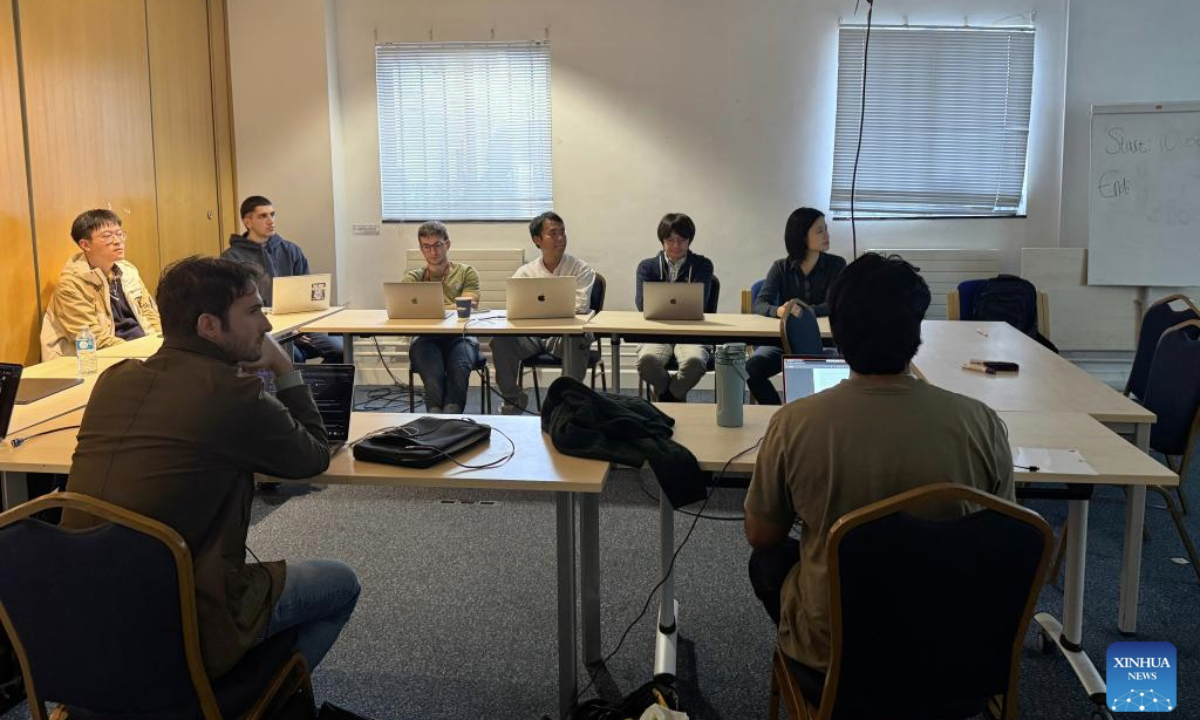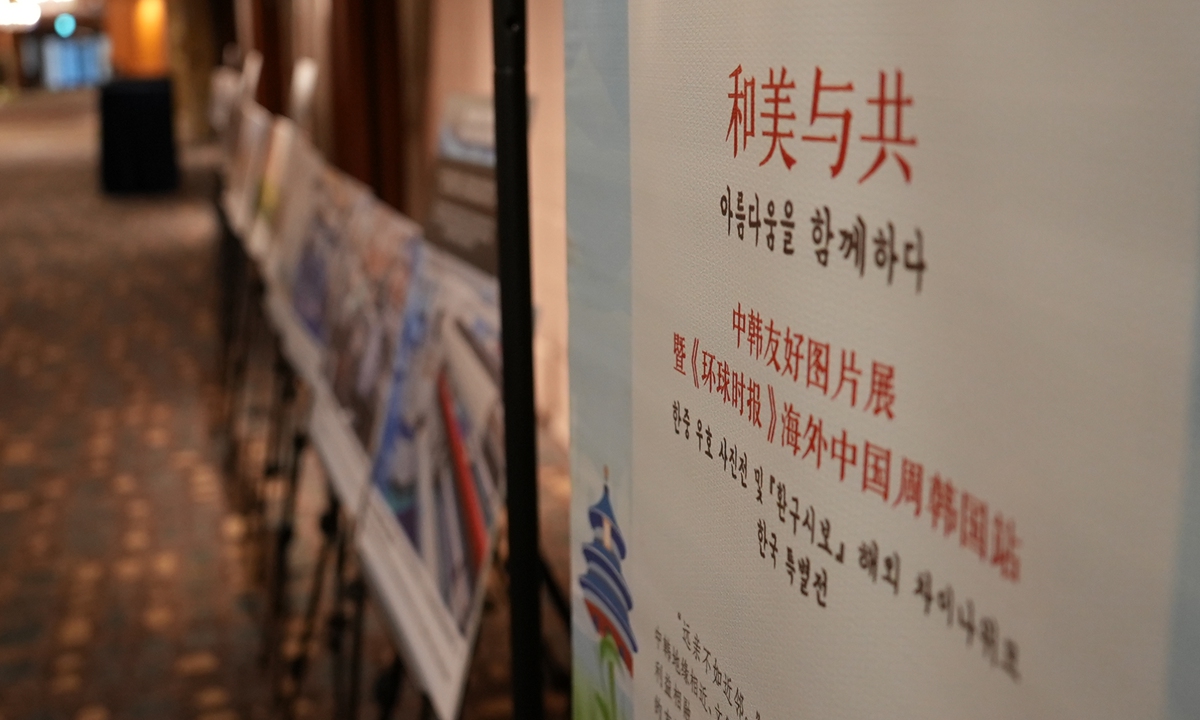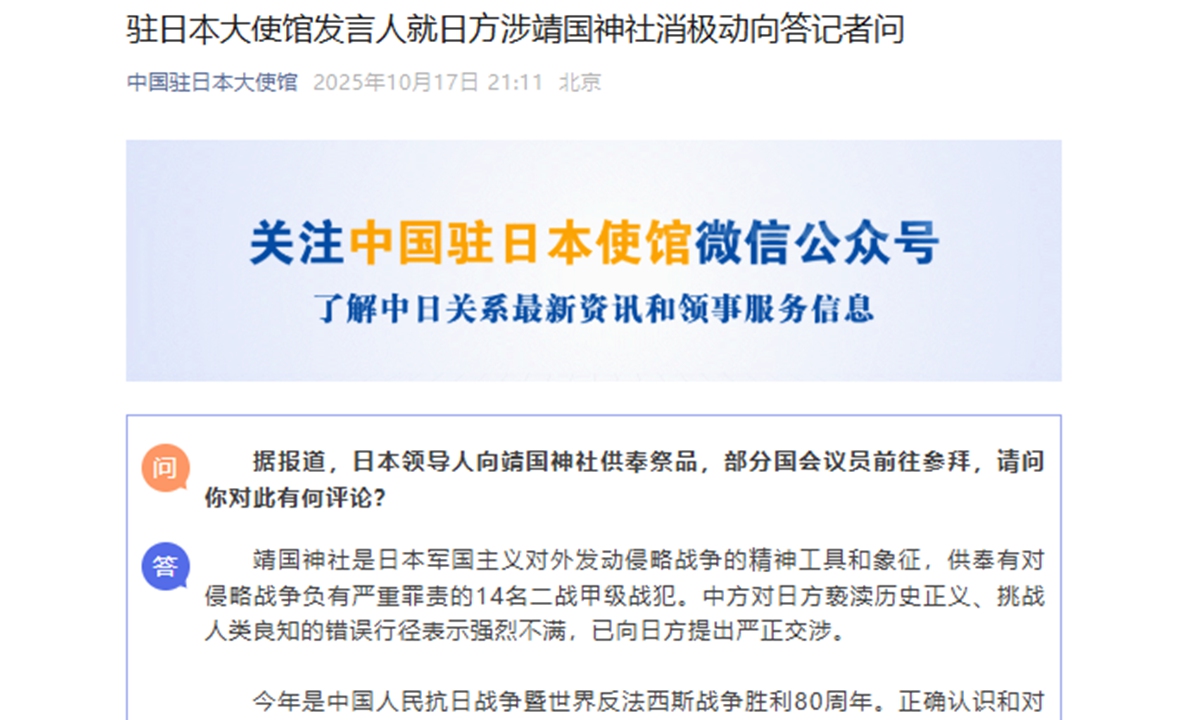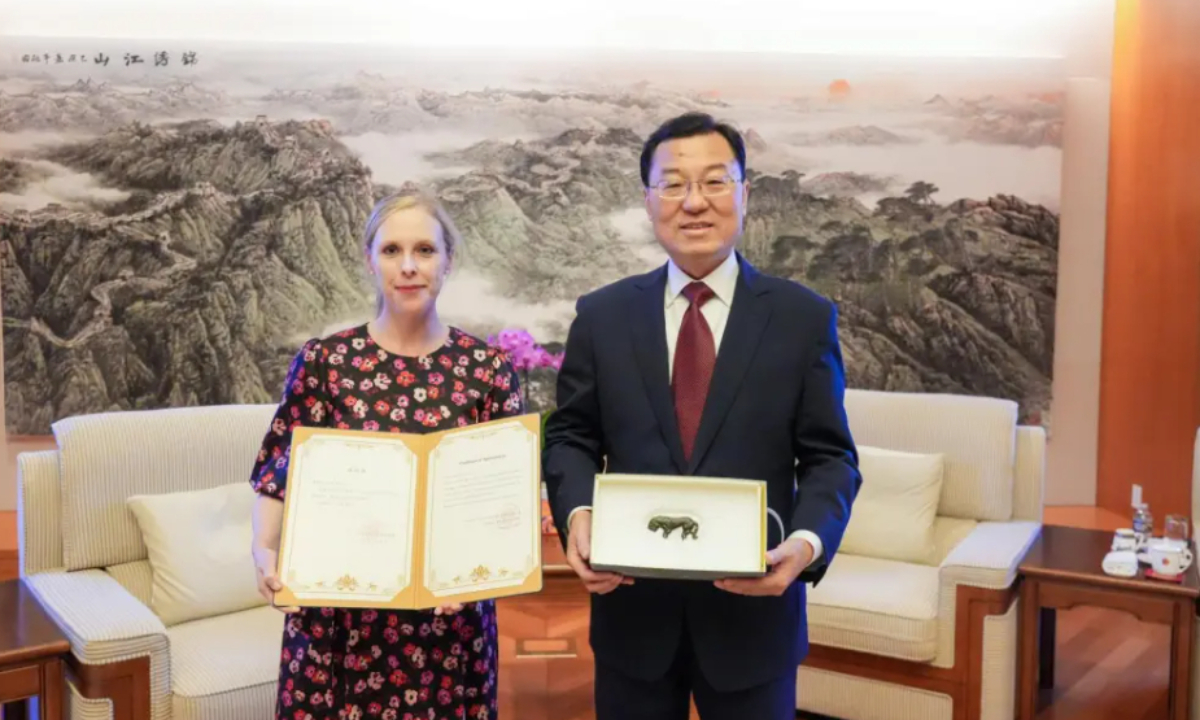It was a bright autumn afternoon in London. At Imperial College’s Huxley Building, home to the Department of Computing, new students filled the corridors while graduates posed for photographs in the courtyard.
Inside a seminar room, Associate Professor Li Yingzhen led her weekly research meeting. Around the table sat nine PhD students, all men. The only woman in the room was their supervisor. “I have one female PhD student,” Li said, “but she’s not currently in London.” It was a quiet reminder of how male-dominated the field of computer science remains.
Li’s journey to this room began far from London. She majored in mathematics as an undergraduate in China, but by her second year, she realized her true passion lay not in abstract proofs, but in data. Summer schools and data science competitions paved the way for her to attend the University of Cambridge for a PhD in machine learning.
Her research focused on probabilistic machine learning, which models how data is generated. “Imagine asking an algorithm to draw a cat,” she explained. “You only say the word ‘cat,’ but the model must fill in the unseen details — that’s where probability comes in.”
After completing her PhD, Li spent two and a half years as a senior researcher at Microsoft Research Cambridge. A turning point came in 2018, when her paper on score matching caught the attention of Ilya Sutskever, then chief scientist at OpenAI. “He emailed me after the conference,” she recalled. “He liked the style of my work and invited me to interview for a research scientist position at OpenAI.” She turned down the offer, but called it “a significant recognition of my research.”
For years, Li was often the only woman in the lab. “During my PhD, for nearly three years, I was the sole woman among fifty or sixty people,” she said. The experience sharpened her awareness of gender dynamics in computing. “I often had to convince male colleagues using very objective data and evidence to make my point, and to collaborate more effectively,” she noted.
“I learned to let the data and facts speak for me,” Li explained.
When disagreements arose over research directions or methodology, she would prepare clear visualizations, cite peer-reviewed work, or run additional tests to support her proposals. In her view, this evidence-driven approach not only strengthened her credibility but also created a shared foundation for effective collaboration.
At Imperial, Li is now part of a growing community of women in computing: around 30 percent of professors in her department are female, a marked improvement from when she started. She has become both a mentor and role model for young women entering the field.
Her colleague Fan Hongxiang said Li’s expertise “is no less than, and often surpasses, that of many male experts,” adding that she pays close attention to students’ growth. Her personal website reflects this balance, showcasing not only her academic achievements but also photos of lab gatherings, including game nights with her team.
Today, Li supervises 11 PhD students and two postdocs from China, Europe, South America and elsewhere.
Her students describe her as both motivated and empathetic. “She gives you space to become autonomous, but steps in when she sees you struggle,” said Carles Balsells Rodas, one of her PhD students. “She’s very passionate about research — when she gets excited, it’s contagious.”
Pinned on her office door are six words she calls her “six C’s”: curiosity, courage, challenge, concentration, continuation and confidence.
“Curiosity drives science,” she said. “Courage means not blindly following authority, and confidence is about debating your ideas with your peers. These are not just research principles, they’re life principles.”
Li’s academic record speaks for itself. In 2020, she became one of the first Chinese scholars to deliver a tutorial at NeurIPS, one of the world’s top machine learning conferences.
In 2021, she debated Yann LeCun, Turing Award laureate and one of the “three giants” of deep learning, on probabilistic methods in energy-based models. “There was no clear winner,” she laughed, “but it was a serious 50-minute debate that highlighted what probability brings to the table, and the challenges it faces.” In 2023, she was named one of the Association for the Advancement of Artificial Intelligence’s global “New Faculty Highlights,” recognizing her as a rising scholar.
Li is also deeply aware of the social implications of artificial intelligence. “Try using an image-generation app to create a ‘doctor’ or ‘CEO’,” she said. “Most of the time, you’ll get a man. But ask for a ‘nurse’ or ‘teacher,’ and you’ll likely get a woman. This reveals how biased the underlying data can be.”
This, she argued, is why women’s participation in AI development matters. “AI is data-driven and user-driven,” she said. “Without women’s experiences being part of that data, we can’t build fair or empathetic systems. We need women not just as users, but as creators of AI.”
Within her department, female professors support one another through informal mentoring, peer review of grant proposals, and mock interviews. The Women in Computing association brings together female students, postdocs and faculty to share experiences and invite successful alumni to inspire the next generation.
Li remains closely connected with China’s fast-growing AI sector. Her twin sister leads an AI engineering team at ByteDance, and Li regularly exchanges ideas with scholars back home during visits.
“In some applied areas, like fine-tuning image generation, China is leading,” she said. “In fundamental innovation, Europe still has an edge in exploring bold ideas. The two can complement each other.”
She recently spoke at the UK Women in AI Summit, organized by the China-Britain Artificial Intelligence Association. The forum called for women to overcome self-imposed barriers and expand their influence in academia and industry.
For Li, however, the mission goes beyond representation. “Developing AI that understands human needs and embodies empathy will require more women to participate,” she said. “It’s about building systems that are sustainable, socially responsible and diverse.”











